by ASJAD NAZIR
ASHWINY IYER TIWARI ON HER MOVE INTO DIRECTING AND BEING A ROLE MODEL
THE male-dominated Indian film industry has seen a dramatic shift in the past decade with women taking the lead in high-profile projects.
One of those females changing the face of Bollywood is ace filmmaker Ashwiny Iyer Tiwari, who has made a stunning entry into cinema with movies that have received massive acclaim, won awards and been popular with audiences.
She has gone from a sterling career in advertising to directing Nil Battey Sannata and its Tamil remake Amma Kanakku, along with Bareilly Ki Barfi. All the films have had strong female leads and turned her into one of the most important new voices in Indian cinema.
Today the in-demand writer/director is blazing a trail with her artistry, becoming a powerful role model and expanding the horizons of commercial cinema in India. Eastern Eye caught up with Ashwiny during a rare moment when she was free to talk about her amazing entry into cinema, future plans and more...
What first got you connected to films?
I got connected to the art of storytelling very early when we used to do plays in school. Essay-writing and speaking was also something I looked forward to. I loved The Sound Of Music and Malgudi Days, which was a TV series. So I guess that was a start.
Do you remember the first movie that you fell in love with?
I don’t remember a first movie. But watching The Sound Of Music on a DVD player at my uncle’s home, who had returned from Dubai, made an impact. I also watched Jo Jeeta Wohi Sikandar in a cinema hall where the light went off suddenly. I remember being so unhappy not being able to watch the ending. I thought of the end of the movie for a very long time.
(Laughs) In those days we did not get pocket money to watch movies twice. Then there were Sunday movies on TV where I was spoilt for choice between Tamil, Marathi, Malayalam and Hindi movies. The benefit of knowing multiple languages is I enjoyed all kinds of lingual movies too.
How did you feel making your first film Nil Battey Sannata?
I felt a sense of gratitude and achievement that I had the opportunity to tell a story I wanted to.
I loved your directorial debut. Did you expect it to make such a big impact?
I was not looking at making movie for the numbers. I was looking at spreading my voice as a storyteller to reach as many people as I could. I just wanted to touch their hearts.
I believe as filmmakers we have the power to move people by inspiring and making them laugh, cry or taking a step forward in life. That’s why I wanted to make movies and will continue to for the rest of my life.
You went from your stunning debut to directing a Tamil remake of it, Amma Kanakku. Then your next film Bareilly Ki Barfi won a load of awards. How did you feel about that?
Awards are a sense of gratification and a
reassurance of working hard with all your heart without thinking of the results. My journey is more important than the end result. If I’m true to my audience, they will accept me.
I was actually very sentimental since I received lots of love and awards for both Nil Battey Sannata and Bareilly Ki Barfi. When you are recognised for your work more than who you are and where you come from, that makes me want to work harder.
The expectations around you are sky-high. Do you now feel under pressure with future films?
If I start thinking and being under pressure, I will never be able to make the films I want to. For me, every film is like my first.
I am as nervous and hardworking with each one. I feel success and rewards are transitional. It’s important to keep working like it’s the first time, without any previous baggage of what I have achieved. So every film will always be a humble, grateful beginning.
What kind of stories are you drawn towards as a writer/director?
Stories about life attract me. (Smiles) I like happy stories. That does not mean I won’t make thrillers in the future. But I will be drawn more towards the functioning of the human mind. I am drawn towards psychology, ethnography and meta-physics.
The complex mind of varied emotions really excites me. I can randomly go and talk to people about their lives and they will even tell me about it. So human connection and trust is what I am about. I cannot tell false-derived stories unless I am taking my audience to a surreal world.
You have received a lot of acclaim and awards, but which has been closest to your heart?
It’s difficult to differentiate and say which child you like better. I love all my films and all my awards.
What can we expect from you next?
I want to improve with each film. I like educating and challenging myself with work which is different from what I have done previously. So they will be different from Bareilly Ki Barfi and Nil Battey Sannata. But one thing which won’t change will be the soul and staying true to my voice. I won’t give up that for anything.
Who would you love to work with?
There are many young talented actors. For me, the character should fit into the actor and not vice versa. Fortunately we have a bunch of fearless talent who are ready to experiment and willing to try new characters, and audiences who are ready to accept them. With that unanimity, sky is the limit.
Does it disappoint you that there aren’t more female filmmakers? Is that changing?
I would differ here. A filmmaker is a storyteller. It’s we who put the tags. There are loads of women working in the industry now. We should stop dissecting as male director or female director. Just a storyteller and appreciating the fact that we have more artists coming into the industry who happen to be women.
What more can be done to empower women in cinema?
Every individual just needs to be themselves and everything else will fall into place.
You have become a powerful role model, but who do you look up to?
(Smiles) Thank you for saying this, Asjad. I have never looked up to anyone. But if you ask me to pinpoint, the people who are the most normal ones inspire me, like my grandmother who raised three children alone. My mother who always believed that I should get educated, stand on my own feet and not depend on anyone. My aunt who did her library science at the age of 55.
My maid, who is uneducated but strived to work hard, and through her smartness manages her household and educates her four children who are doing very well in their studies. So every day, humans inspire me in some way.
What kind of movies do you enjoy watching as an audience member?
I like all kinds, but movies that have a graph and characters well defined excite me. I watch movies like an audience. So even the masala movies I enjoy, laughing aloud and having popcorn. (Laughs) The only genre of movie I cannot watch is horror.
What are your predictions for Indian cinema?
Stories that redefine our roots! We are a country of narratives and should just keep excelling in the art of Indian universal storytelling, which is world-class.
You make universal stories. Can you see yourself making movies in the west?
I would love to. Maybe in the future. Storytelling should not have boundaries.
What are your big passions away from work?
I love travelling and organic farming. My dream is to build a huge forest. I am a nature lover and have a keen interest in the spiritual aspect of nature and its being. So eventually I have plans to work towards environment and education. I am an avid bibliophile. I have been told I shop for more books than clothes. Books excite me and I am currently writing a novella.
What is the best advice anyone has gave you?
I had read this somewhere and I keep it as my mantra, “work so hard with gratitude that you don’t have to introduce yourself” and “let your work speak for itself”.
What inspires you today?
Life, books, nature and my twin children.
Why do you love cinema?
I love cinema because it gives me the power to change emotions in people. I can make them laugh and cry. I can even inspire them. It’s my way of gratifying human life.














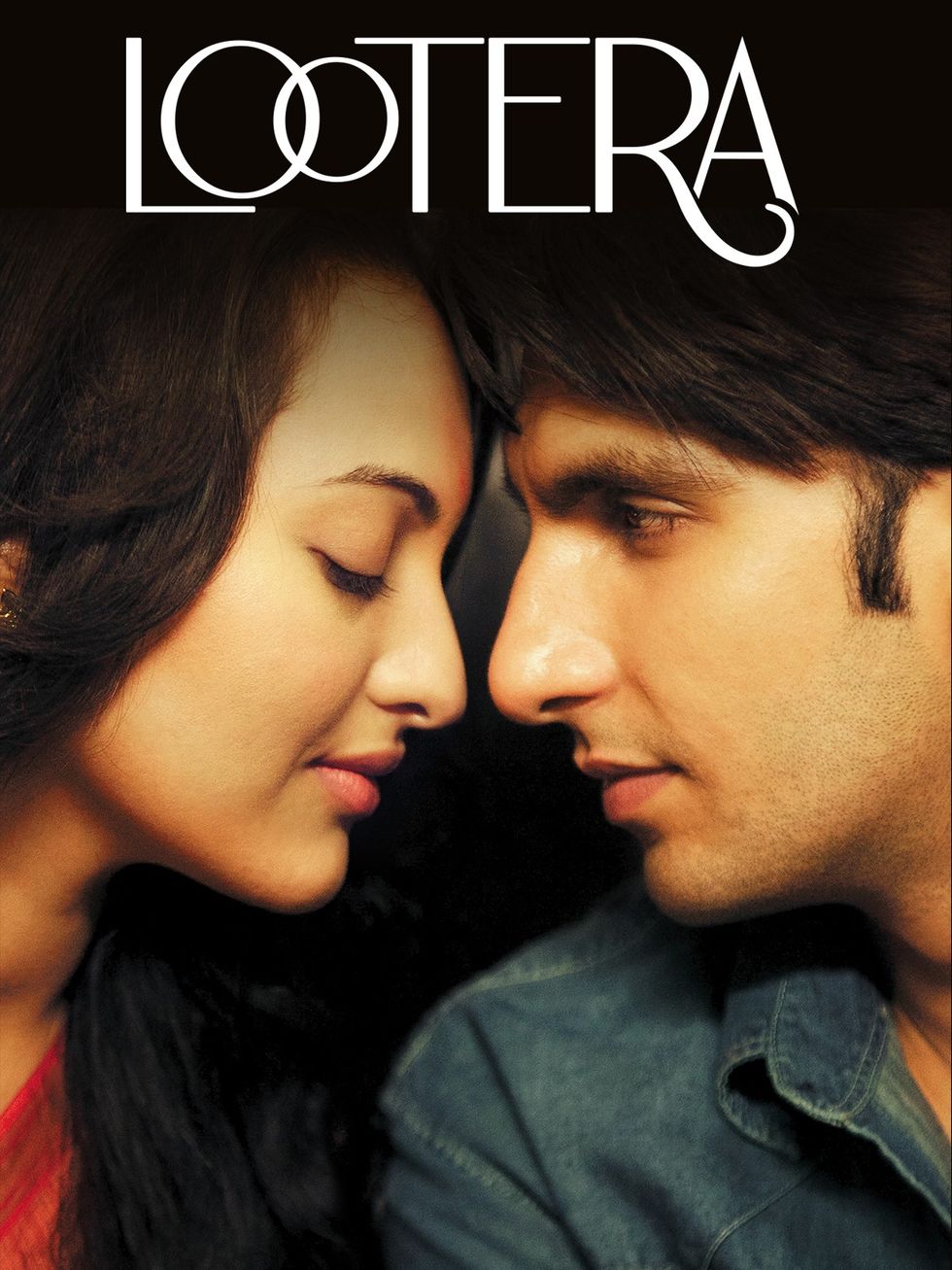 Lootera released in 2013 and marked a stylistic shift for Ranveer Singh Prime Video
Lootera released in 2013 and marked a stylistic shift for Ranveer Singh Prime Video 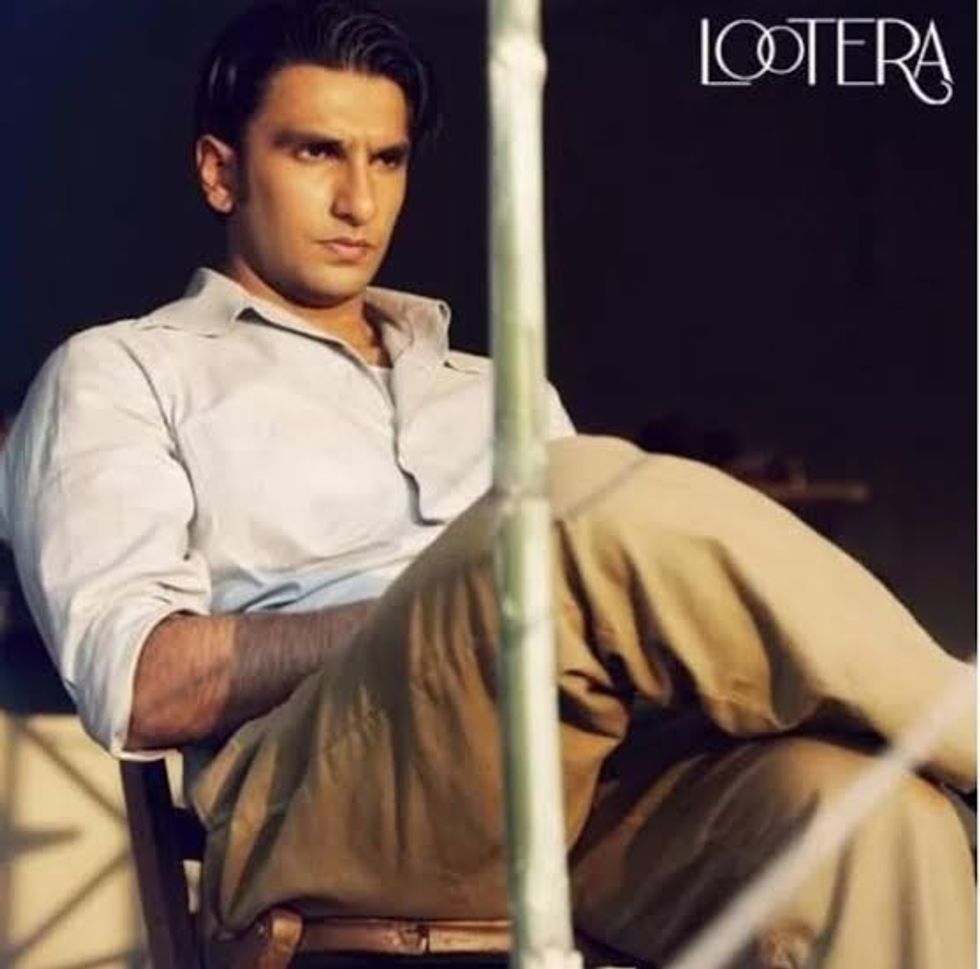 Ranveer Singh’s role as Varun showed he could command the screen without saying much
Ranveer Singh’s role as Varun showed he could command the screen without saying much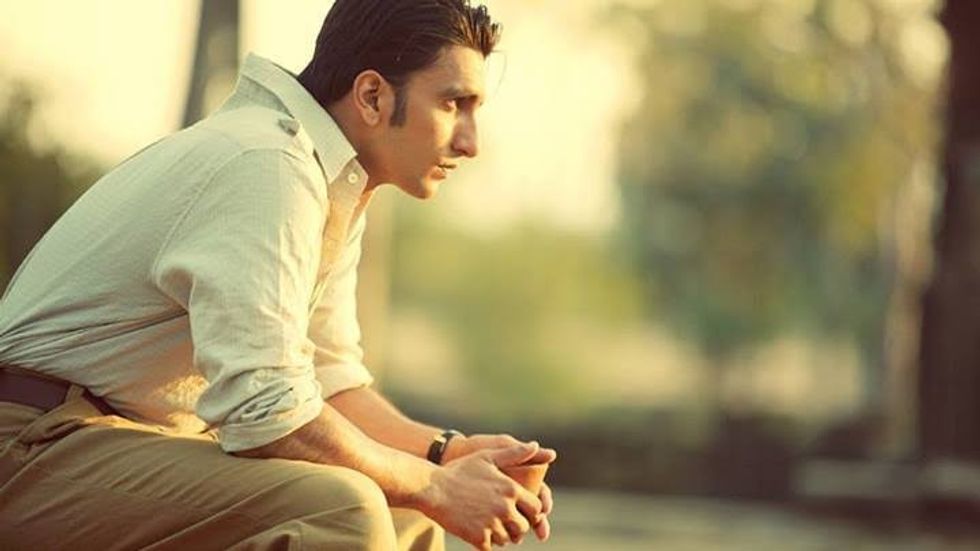 The period romance Lootera became a turning point in Ranveer Singh’s career
The period romance Lootera became a turning point in Ranveer Singh’s career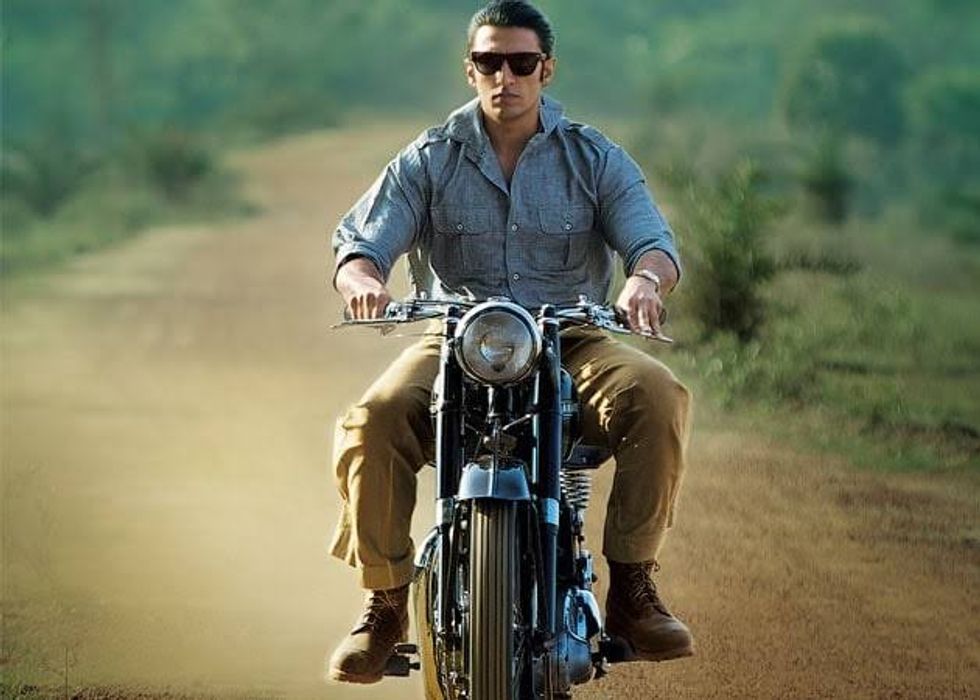 Ranveer Singh’s performance in Lootera was praised for its emotional restraint
Ranveer Singh’s performance in Lootera was praised for its emotional restraint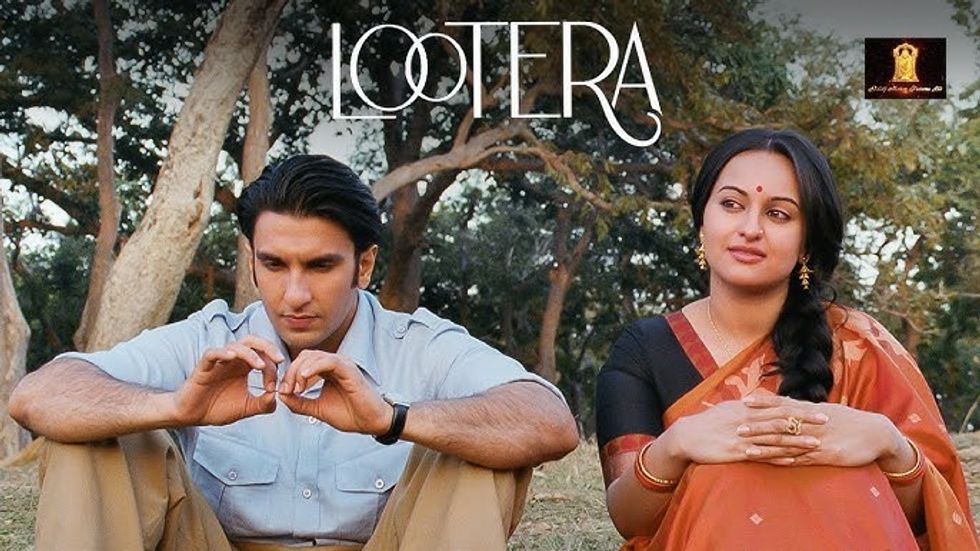 Ranveer Singh and Sonakshi Sinha starred in the romantic drama set in 1950s BengalYoutube/Altt Balaji Motion Pictures
Ranveer Singh and Sonakshi Sinha starred in the romantic drama set in 1950s BengalYoutube/Altt Balaji Motion Pictures 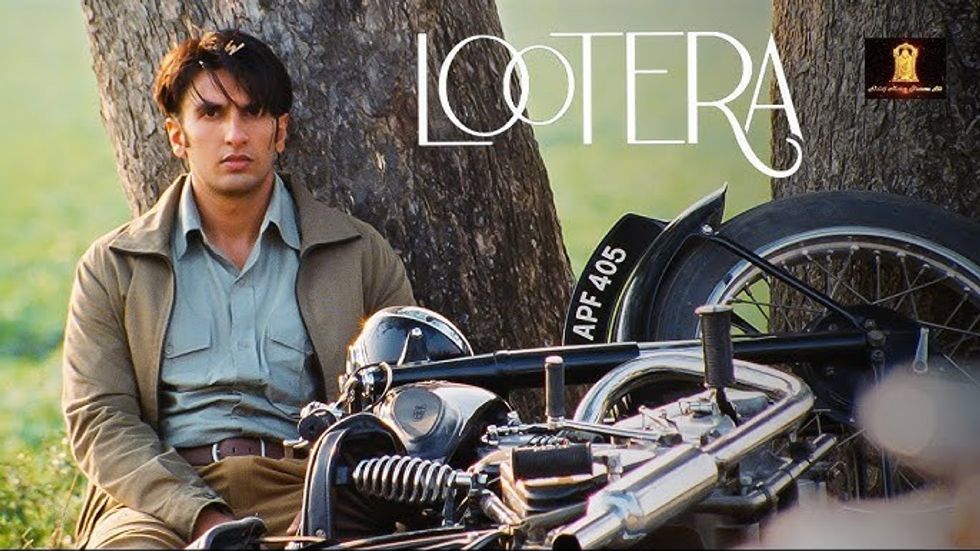 Lootera’s legacy has grown over the years despite its modest box office runYoutube/Altt Balaji Motion Pictures
Lootera’s legacy has grown over the years despite its modest box office runYoutube/Altt Balaji Motion Pictures

